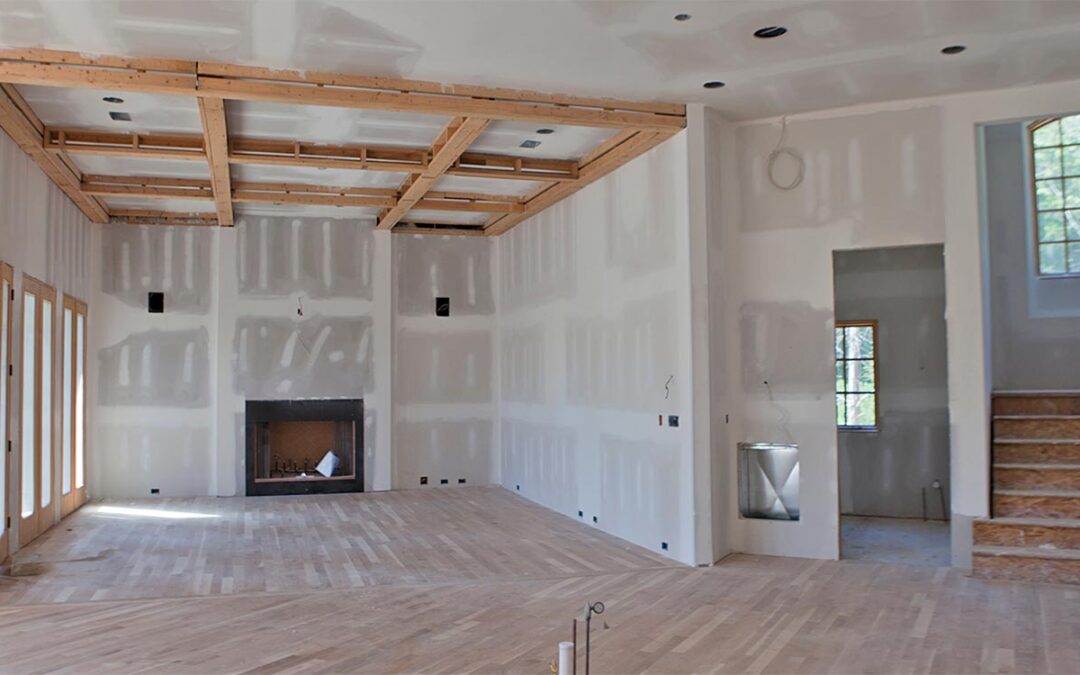Are you looking to buy a new home in Chicago? It may be worth considering investing in a new construction home. These homes offer a range of benefits that a pre-existing home simply cannot. From customization to energy efficiency, this blog post will explore the pros, how to negotiate pricing, the buying process, and advantages of investing in reputable builders. So, in this article, we’ll answer the question: Is new construction a good investment?
Benefits of investing in new construction homes:
Investing in new construction homes comes with numerous benefits.
Firstly, everything is brand new. No need to worry about unexpected repairs or replacements that can be costly. I always tell my buyers their home should be “hundred percent perfect” upon moving in, without needing any major renovations or repairs for at least a decade. It’s a tall order, but achievable when working with the right builders. And if you’re not handy, like me, there is really no product that is more “move-in ready” than a new construction home.
Secondly, new construction homes come with a builder’s warranty. This provides peace of mind that if any issues arise within a certain timeframe, the builder will fix them. This warranty covers anything that the developers have done, from cabinets and doors to closets and floors. It even extends to outlets and other mechanical components, protecting you from any unexpected issues that may arise in your new home. And if that wasn’t enough, you also get a warranty on all your appliances, making sure that you’re fully covered from top to bottom. With a builder’s warranty, you can move into your new home without any worries, enjoying all the benefits of a brand-new home.
Thirdly, new construction homes offer customization of finishes to better suit your preferences. Buying a home is always a give-and-take process. Maybe you don’t love the bathroom or the kitchen light fixtures, but with new construction, you have the ability to customize every single detail. From door handles to tile to appliances, the possibilities are endless. This is something you don’t always get with a resale.
Not only do you get to personalize your space, but you also don’t have to worry about finding the right contractor or if the work is even being done correctly. With new construction, the city has to come out and give a certificate of occupancy, ensuring that everything was done up to code. This extra layer of protection provides peace of mind that you won’t always get with a resale. So why settle for someone else’s vision when you can create your own dream home?
Negotiating new construction prices:

Buying new construction can be a bit tricky, as developers typically don’t have a lot of wiggle room when it comes to pricing. However, that doesn’t mean you can’t still add value to your new home. One way to do this is by customizing certain areas to your liking – think built-ins, closet buildouts, and specific light fixtures. In many cases, developers may even offer credits toward these customizations as a closing incentive. So while you may not be able to negotiate down the sticker price, you can still find ways to increase the value of your home without increasing the final price.
The buying process of new construction:

The buying process for new construction homes can be different from buying a pre-existing home.
Touring a property with your agent is often the first step in new construction. In this case, you’ll most likely tour the home early in the process when there’s not much to see regarding finishes. In these cases, you must use blueprints and renderings to visualize the final product.
When dealing with a buyer or listing agent, a developer’s contract is frequently used to provide all the information needed to make a purchase. This contract will cover everything from timelines to home warranties and punch lists. Once you have the developer’s contract, it is essential to go through it with our clients to ensure they understand everything involved in the purchase. While negotiating new construction prices is possible in some cases, it is not always an option. Nevertheless, going through the contract is vital to ensure a smooth and successful purchase.
When it comes to new construction, inspections are a little different from the traditional process. Once the project is about 80-90% complete, it’s time for the punch list inspection. The nice thing about this kind of inspection is that the developer is usually responsible for fixing any issues that arise, as long as they’re reasonable. Clients get to participate in a blue tape walkthrough, which gives them the power to mark any areas that need attention. It’s an exciting process that clients tend to enjoy, and it helps ensure that everything is up to standards. It’s also important to remember that most new builds come with a builder’s warranty, providing extra peace of mind. So, if you’re considering a new construction project, rest assured that the inspection and resolution process is designed to be hassle-free.
One question that often comes up is whether or not to get an inspection. While it’s ultimately up to the buyer, it’s always advised to get a home inspection. Even if you’re purchasing new construction or a gut rehab, you never know what issues may arise. In fact, I’ve had inspections on brand new homes where major foundation issues were uncovered. It’s always beneficial to have a secondary set of eyes, outside of the developer, agent, and client, to provide a different perspective. Getting a home inspection can uncover potential problems and give you peace of mind in your investment.
Advantages of reputable builders:

Reputation is important when it comes to investing in a new construction home. A reputable builder offers reliability, client satisfaction, and a good reputation in the building industry. Working with a reputable builder will give you certainty that they possess the necessary skills and experience to build a high-quality home.
Investing in new construction homes is a smart choice for many homebuyers in Chicago. With numerous benefits, such as customization options, everything being brand new, and energy efficiency, there are many reasons to consider this investment. Although negotiating prices is rare, adding value through customization and finishes is a possibility. The buying process may differ from buying a pre-existing home, but reputable builders offer reliability and client satisfaction. Take these factors into account when exploring your options for a new home.

